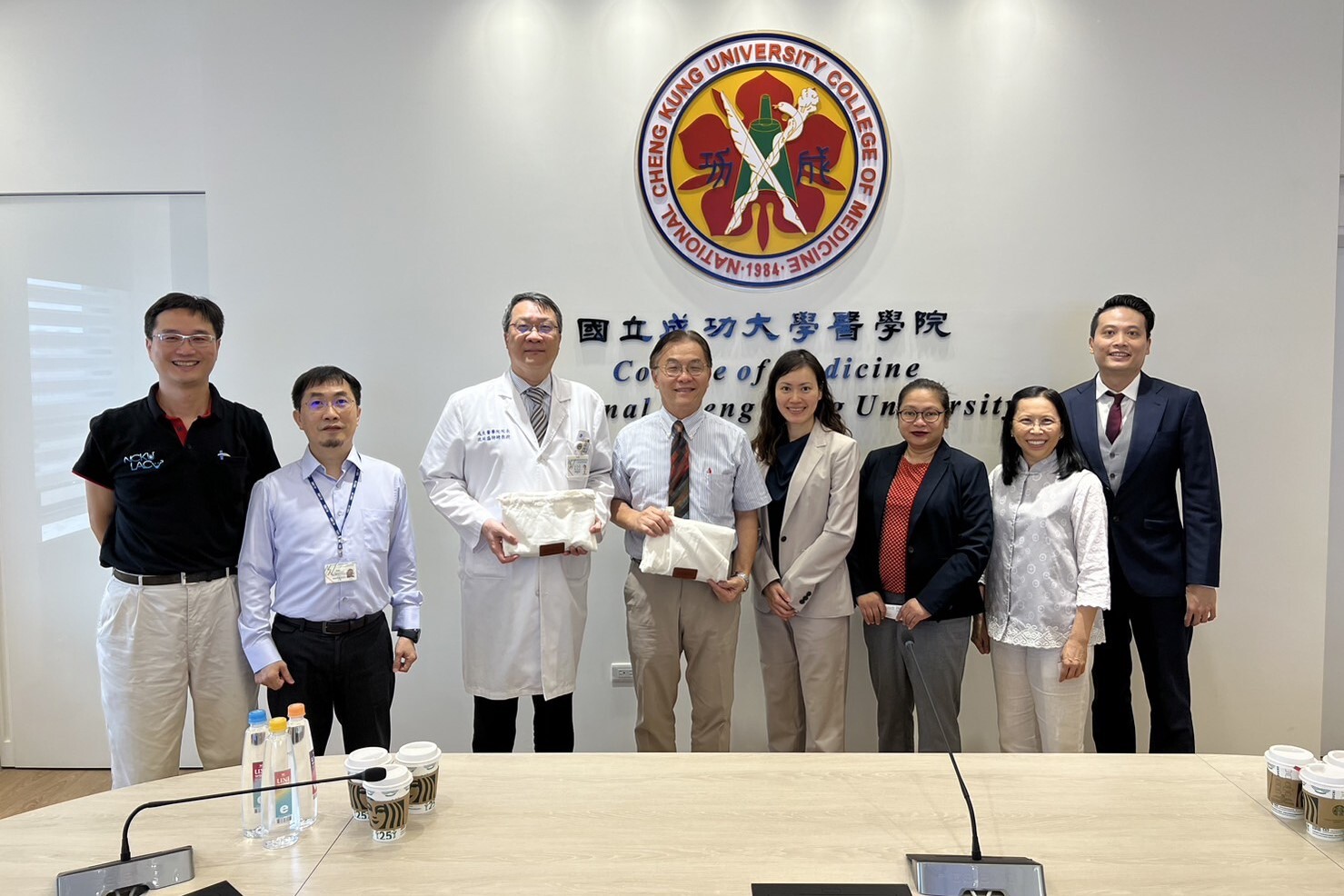SDG3
Professor Huang-Tz Ou from NCKU Pharmacy Wins the 113th Outstanding Scholar Award for Pharmaceutical Economics Research
Faced with the financial difficulties of the National Health Insurance (NHI), it is crucial to make the most effective use of medical resources and implement reasonable control. Professor Huang-Tz Ou from the Department of Pharmacy and the Institute of Clinical Pharmacy and Pharmaceutical Sciences at National Cheng Kung University (NCKU) has built on her previous academic achievements and proposed the research project "Establishing the TPEvalue (Taiwan Pharmaceutical Economics and Value Research Center) to Optimize Health Economic Evaluations of the Pharmaceutical Reimbursement Lifecycle: A Scientifically Evidence-Based Standardized Research Strategy." This research aims to support NHI decision-making and sustainable management. She was awarded the 113th "Outstanding Scholar Awards" from the Foundation for the Advancement of Outstanding Scholarship.
Professor Huang-Tz Ou is a young scholar in the field of health insurance policy, a member of the National Health Insurance Pharmaceutical Expert Committee, and an advisory expert for the Pharmaceutical Technology Assessment Center. She advocates for the application of "value-based pricing" in health insurance reimbursement decisions, which involves scientifically presenting the reasonable reimbursement price of a drug based on its clinical efficacy and economic benefits. This approach not only makes a significant academic contribution but also attracts attention from national healthcare policies. It has a positive impact on medical resource allocation, total healthcare expenditure control, and ensuring patients' access to essential medications.
Professor Huang-Tz Ou has deeply contributed to the field of pharmaceutical economics and has received numerous national and international awards, including the National Science and Technology Council's "Ta-You Wu Memorial Award," the Foundation for the Advancement of Outstanding Scholarship's "Young Scholar Innovation Award," and the International Society for Pharmacoepidemiology's "Rising Star Award." In the 113th year, she was recognized for the first time when applying for the "Outstanding Scholar Awards" from the Foundation for the Advancement of Outstanding Scholarship, which will provide a grant of 700,000 NTD per year for three consecutive years. Professor Ou is also the first scholar from NCKU to receive this prestigious award. Notably, Professor Ou is one of the few female awardees and the only awardee among many basic science scholars who focuses on applied sciences and big data analysis related to national healthcare and insurance issues. Her recognition is a significant encouragement to scholars in the fields of health economics and policy, with profound and far-reaching implications!
Should new drugs be included in the NHI? In recent years, Taiwan has begun implementing prospective evaluations, temporary reimbursement, and re-evaluations of medical technologies. However, there is still room for improvement in these assessments. Professor Huang-Tz Ou and her research team aim to establish the "TPEvalue" to address this issue. Using the lifecycle of new drugs in the NHI market as a blueprint, they intend to apply scientific evidence and advanced methodologies to propose scientifically-based strategies for responding to NHI reforms.
The scientific evidence and advanced methodologies include:
1. "Prospective Evaluation" : Constructing a large-scale database specifically for prospective evaluations and standardized screening indicators, used during the stage before new drugs enter the market.
2. "Medical Technology Assessment" : Developing a Taiwan-specific pharmaceutical value assessment framework and applying value-based pricing for new drugs preparing to enter the reimbursement phase.
3. "Temporary Reimbursement and Medical Technology Re-evaluation" : Establishing Taiwan's real-world cost-effectiveness methodology guidelines, and revisiting value-based pricing of drugs based on the heterogeneity of treatment effects in different patient populations, providing scientific recommendations for adjusting the reimbursement prices of pharmaceuticals under the NHI system.
Professor Huang-Tz Ou stated that establishing the TPEvalue at NCKU will enable long-term collaboration with government agencies such as the National Health Insurance Administration and the "Health Policy and Medical Technology Assessment Center," which is responsible for pharmaceutical reimbursement evaluations. This collaboration will meet the scientific evidence needs of national policies by providing objective and credible pharmaceutical economics and policy assessments. Additionally, the center will cultivate future talent, especially students from Southern Taiwan, and play an important role in facilitating information exchange and experience sharing with international medical technology assessment organizations. Ultimately, the goal is to allow scientific conclusions to take root in the real world, supporting the sustainable management of the National Health Insurance system.
The Foundation for the Advancement of Outstanding Scholarship was founded by Dr. Yuan-Tseh Lee, former President of the Academia Sinica and Nobel Laureate. Its goal is to support outstanding academic talent in Taiwan to realize their fullest potential and leadership across various research fields. The foundation was established with the support of the business community and various sectors of society. To encourage young scholars in Taiwan to innovate academically and continue to build on their existing achievements, the foundation offers awards and grants, including the "Outstanding Scholar Awards", the "Young Scholar Innovation Award," and the "Outstanding Postdoctoral Researcher Award," among others, to support long-term and in-depth research efforts.
Professor Huang-Tz Ou is a young scholar in the field of health insurance policy, a member of the National Health Insurance Pharmaceutical Expert Committee, and an advisory expert for the Pharmaceutical Technology Assessment Center. She advocates for the application of "value-based pricing" in health insurance reimbursement decisions, which involves scientifically presenting the reasonable reimbursement price of a drug based on its clinical efficacy and economic benefits. This approach not only makes a significant academic contribution but also attracts attention from national healthcare policies. It has a positive impact on medical resource allocation, total healthcare expenditure control, and ensuring patients' access to essential medications.
Professor Huang-Tz Ou has deeply contributed to the field of pharmaceutical economics and has received numerous national and international awards, including the National Science and Technology Council's "Ta-You Wu Memorial Award," the Foundation for the Advancement of Outstanding Scholarship's "Young Scholar Innovation Award," and the International Society for Pharmacoepidemiology's "Rising Star Award." In the 113th year, she was recognized for the first time when applying for the "Outstanding Scholar Awards" from the Foundation for the Advancement of Outstanding Scholarship, which will provide a grant of 700,000 NTD per year for three consecutive years. Professor Ou is also the first scholar from NCKU to receive this prestigious award. Notably, Professor Ou is one of the few female awardees and the only awardee among many basic science scholars who focuses on applied sciences and big data analysis related to national healthcare and insurance issues. Her recognition is a significant encouragement to scholars in the fields of health economics and policy, with profound and far-reaching implications!
Should new drugs be included in the NHI? In recent years, Taiwan has begun implementing prospective evaluations, temporary reimbursement, and re-evaluations of medical technologies. However, there is still room for improvement in these assessments. Professor Huang-Tz Ou and her research team aim to establish the "TPEvalue" to address this issue. Using the lifecycle of new drugs in the NHI market as a blueprint, they intend to apply scientific evidence and advanced methodologies to propose scientifically-based strategies for responding to NHI reforms.
The scientific evidence and advanced methodologies include:
1. "Prospective Evaluation" : Constructing a large-scale database specifically for prospective evaluations and standardized screening indicators, used during the stage before new drugs enter the market.
2. "Medical Technology Assessment" : Developing a Taiwan-specific pharmaceutical value assessment framework and applying value-based pricing for new drugs preparing to enter the reimbursement phase.
3. "Temporary Reimbursement and Medical Technology Re-evaluation" : Establishing Taiwan's real-world cost-effectiveness methodology guidelines, and revisiting value-based pricing of drugs based on the heterogeneity of treatment effects in different patient populations, providing scientific recommendations for adjusting the reimbursement prices of pharmaceuticals under the NHI system.
Professor Huang-Tz Ou stated that establishing the TPEvalue at NCKU will enable long-term collaboration with government agencies such as the National Health Insurance Administration and the "Health Policy and Medical Technology Assessment Center," which is responsible for pharmaceutical reimbursement evaluations. This collaboration will meet the scientific evidence needs of national policies by providing objective and credible pharmaceutical economics and policy assessments. Additionally, the center will cultivate future talent, especially students from Southern Taiwan, and play an important role in facilitating information exchange and experience sharing with international medical technology assessment organizations. Ultimately, the goal is to allow scientific conclusions to take root in the real world, supporting the sustainable management of the National Health Insurance system.
The Foundation for the Advancement of Outstanding Scholarship was founded by Dr. Yuan-Tseh Lee, former President of the Academia Sinica and Nobel Laureate. Its goal is to support outstanding academic talent in Taiwan to realize their fullest potential and leadership across various research fields. The foundation was established with the support of the business community and various sectors of society. To encourage young scholars in Taiwan to innovate academically and continue to build on their existing achievements, the foundation offers awards and grants, including the "Outstanding Scholar Awards", the "Young Scholar Innovation Award," and the "Outstanding Postdoctoral Researcher Award," among others, to support long-term and in-depth research efforts.

Professor Huang-Tz Ou is one of the few female awardees
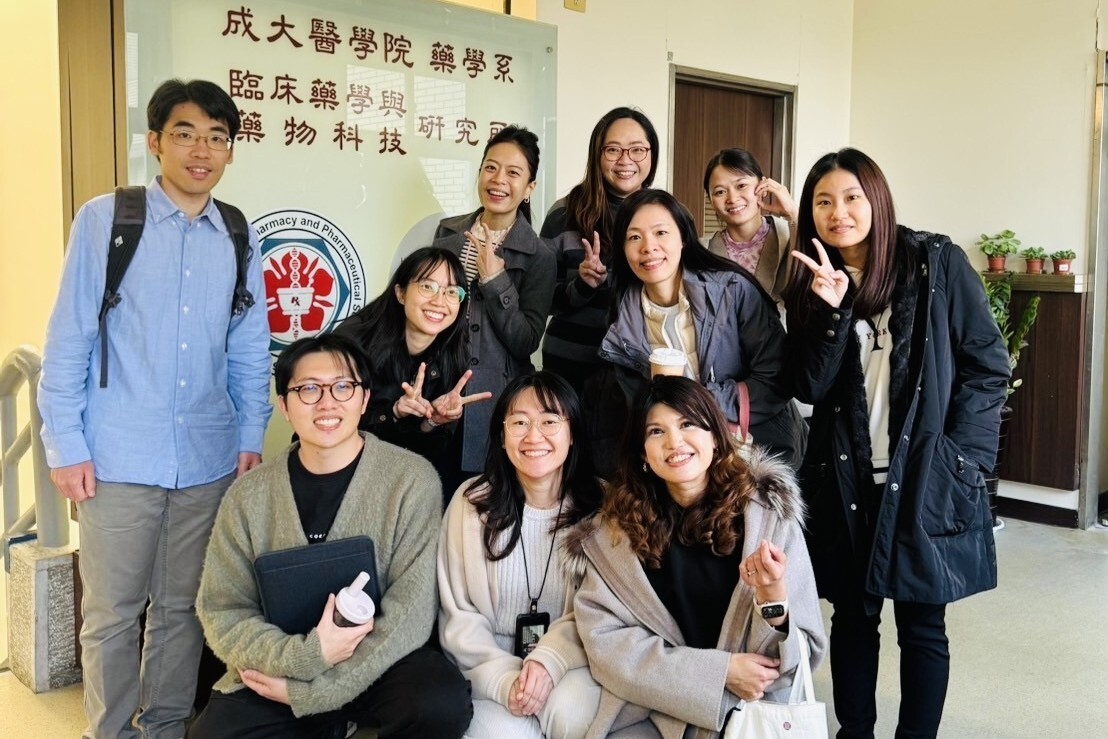
Professor Huang-Tz Ou (first from the left in the third row) and her team with collaborating scholars
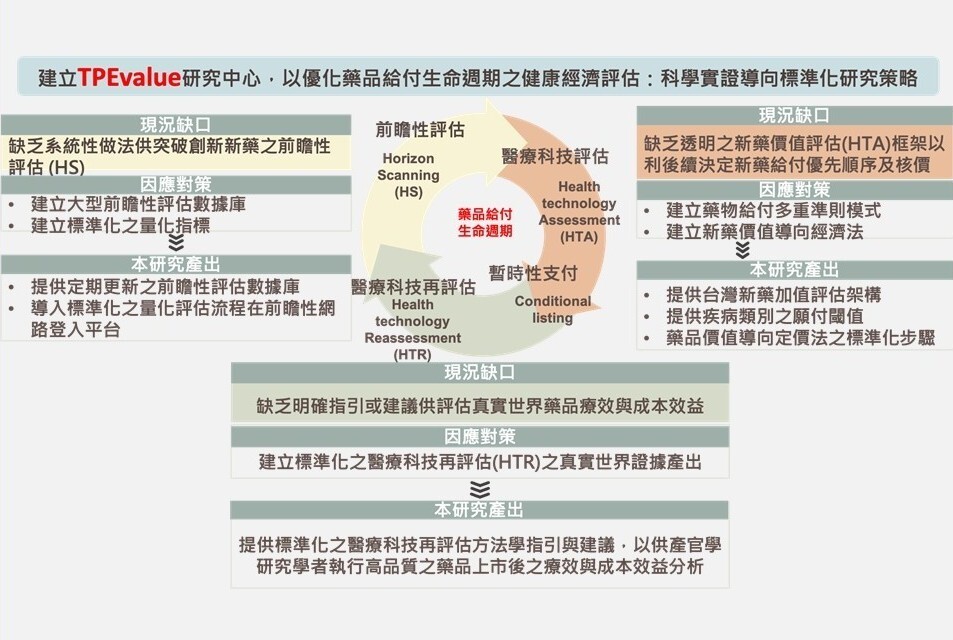
"Establishing the TPEvalue Research Center to Optimize Health Economic Evaluations of the Pharmaceutical Reimbursement Lifecycle: A Scientifically Evidence-Based Standardized Research Strategy" – Visual Summary
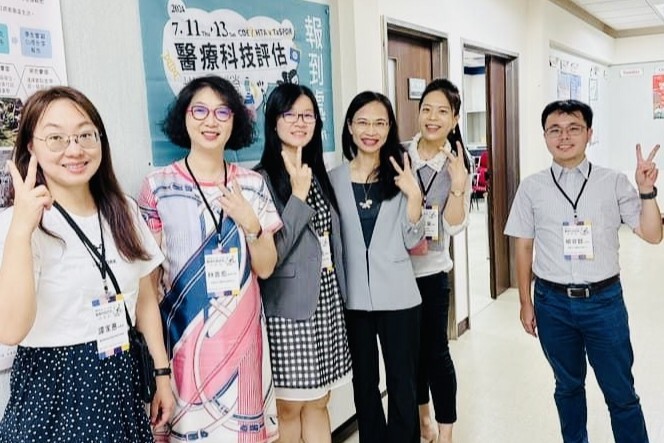
Professor Ou has a strong collaborative relationship with the office of the National Health Insurance Administration, which is responsible for pharmaceutical reimbursement evaluations, and has assisted in planning educational training programs

SDG3NCKU Geomatics Team Develops AI-Driven Real-Time Map of Non-Methane Hydrocarbons, Published in Top Journal
View more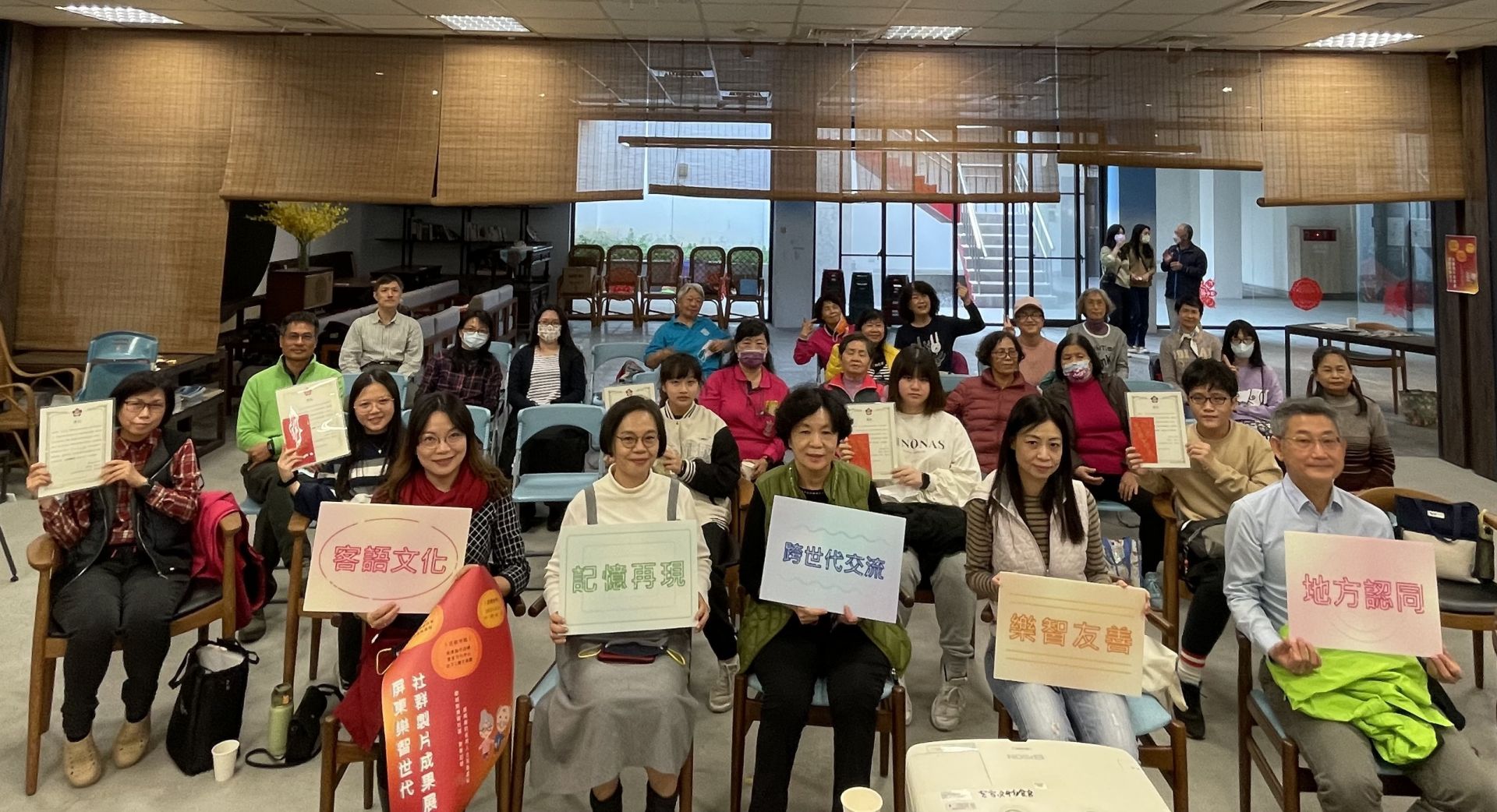
SDG3NCKU and Pingtung County collaborate to help local students host an elderly-friendly film festival.
View more